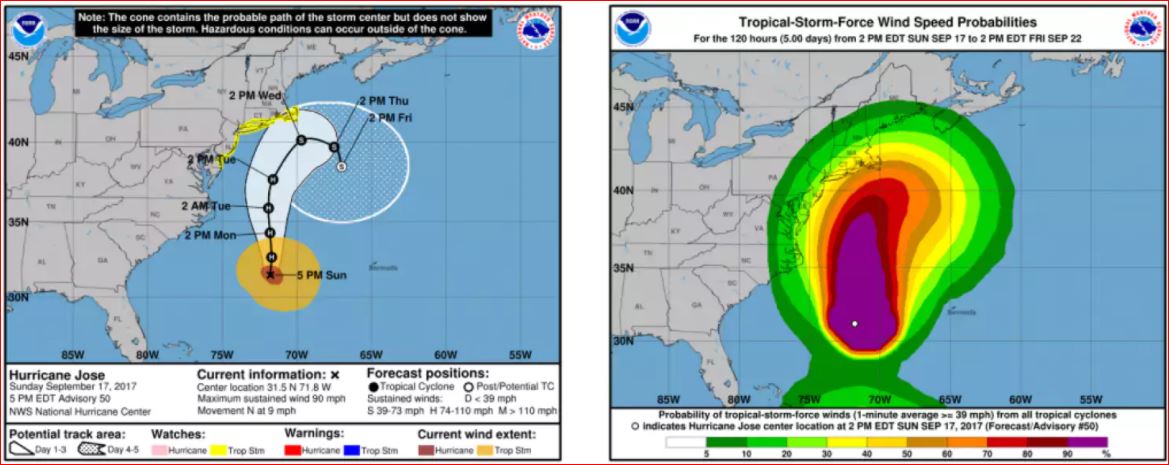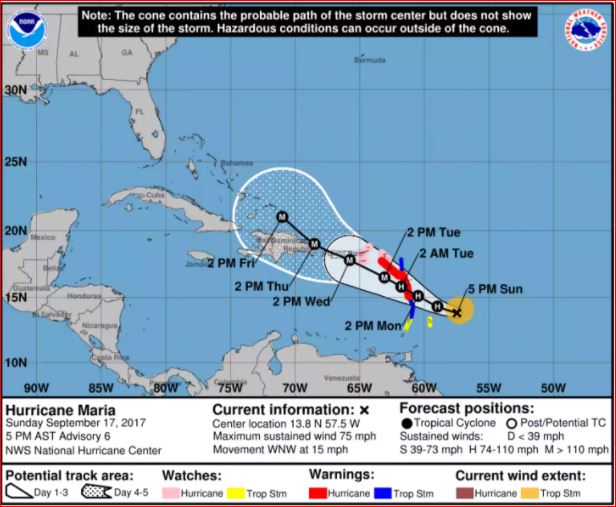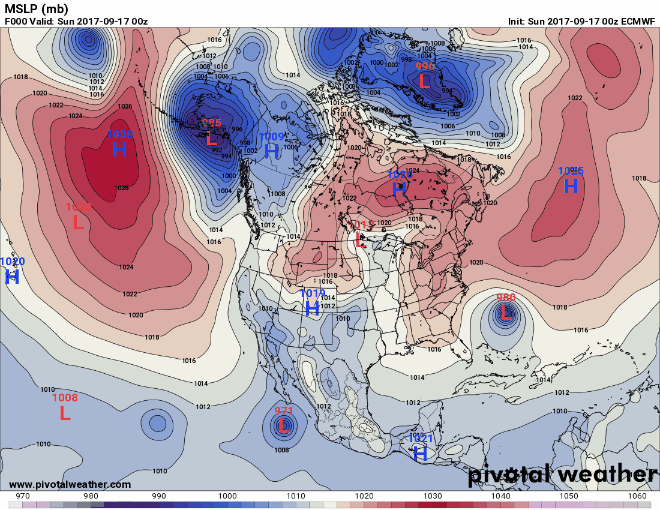Double hurricane blast on the US East Coast? Computer simulations show Jose and Maria could meet
Hurricane Jose is expected to cause direct impacts from Delaware northward to New England.
Meanwhile, less than two weeks after Irma devastated the region, the Caribbean islands are again under threat from a named storm, this time Hurricane Maria. Computer simulations show Jose and Maria could meet along the US East coast.
Tropical storm watches have been issued from Delaware up through Cape Cod. Additionally, Maria has officially strengthened to hurricane status, prompting hurricane warnings on the different Carabbean islands.
Hurricane Jose
Hurricane Jose is currently located about 350 miles off the coast of North Carolina with maximum sustained winds of 90 mph. The storm’s intensity shouldn’t change much over the next 48 hours, as the Jose slowly starts to move around the western edge of a large Bermuda High and toward the north.
Small shifts in the storm track are possible and will have important consequences on how hard coastal areas are hit.
Hurricane Maria
Meanwhile, hurricane Maria, with peak winds of 75 mph, was located about 400 miles east of the Lesser Antilles on Sunday night, moving quickly towards the northwest at 15 mph.Fueled by warm ocean water and low wind shear, Maria officially reached hurricane strength on Sunday evening. Tropical storm and hurricane warnings extend from Barbados to Antigua as Maria should begin to impact the outer islands as early as tonight.

Jose and Maria last dance
Both the European and American models have indicated that some interaction between Jose and Maria will occur, affecting the path of both storms. After passing through the Caribbean islands, Maria is expected to continue on a general track toward the northwest, which could put the storm in a threatening position for the U.S. East Coast by next weekend.
In the meantime, Maria’s immediate threat to the Caribbean is very real and very dangerous, while Jose still bears watching for some impacts along the coast from Virginia to New England.
